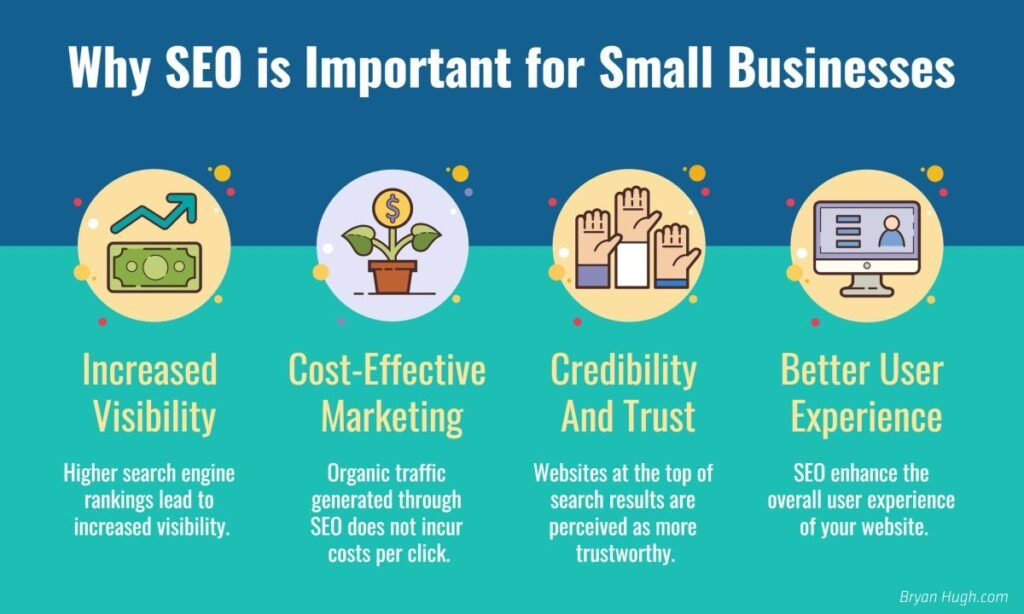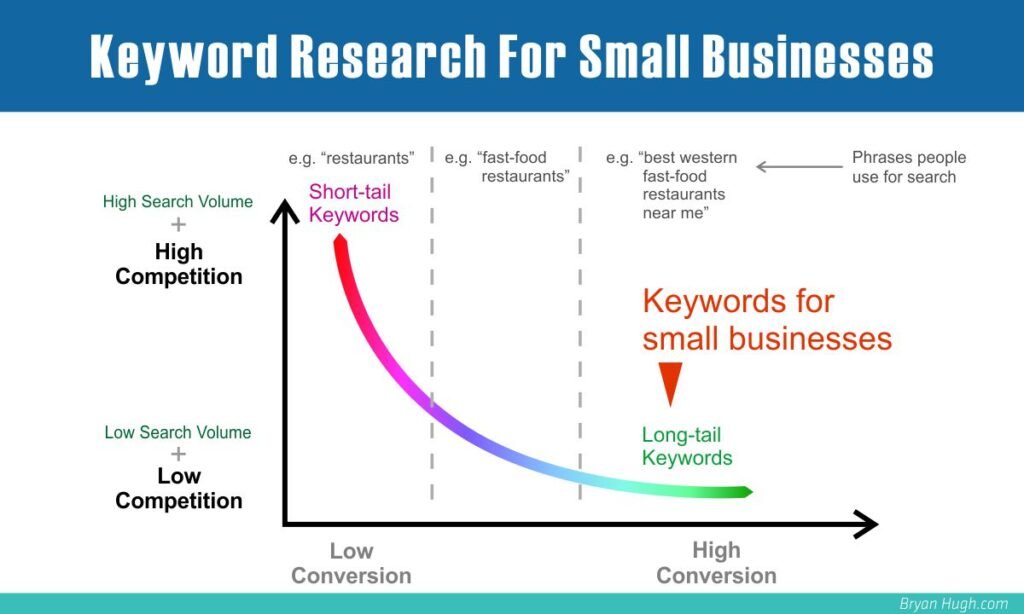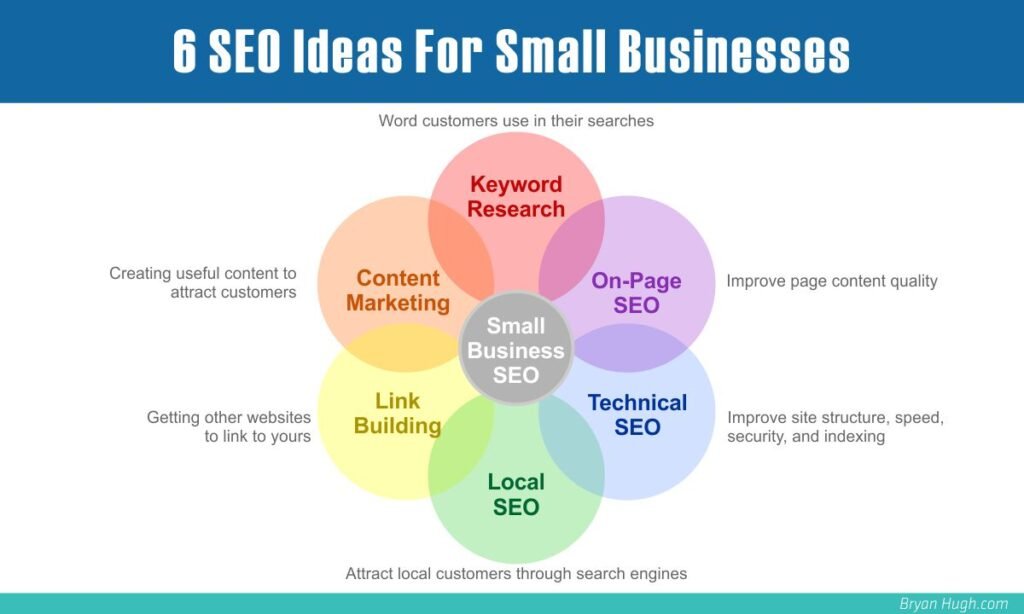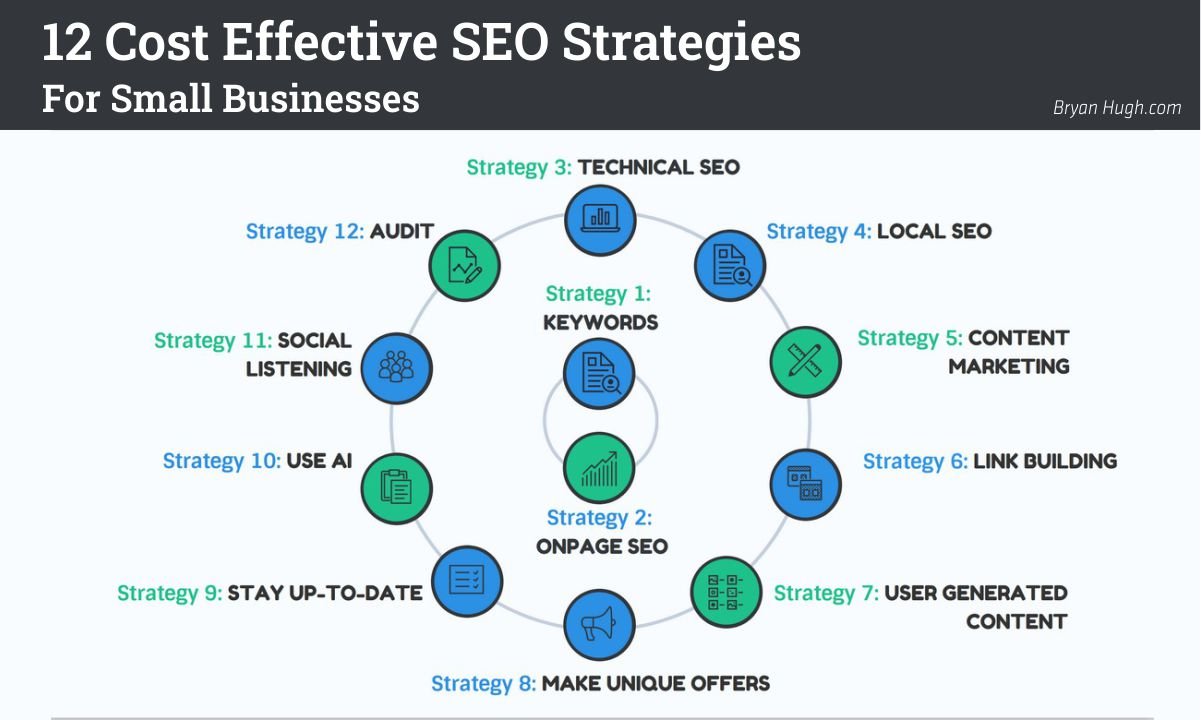Whenever small business owners ask for budget-friendly sales tips, I always say: focus on search engines. Most online experiences start with a search on platforms like Google, Facbook, YouTube, Instagram and others. If people find you, they’re more likely to try your products or services.
To get noticed online and drive traffic to your websites, businesses have two main strategies:
Strategy 1: Paid Search, or Pay-Per-Click (PPC):
- This means paying for ads to show up at the top of search results.
- Advertisers bid on keywords, and their ads appear when people search for those terms.
- Businesses get immediate visibility and traffic once the ads are live.
Strategy 2: Organic Search Engine Optimization (SEO):
- This involves tweaking a website to make it show up better in unpaid search results.
- Involves time and effort rather than direct monetary costs.
- Benefits accrue gradually but more likely to provide sustained traffic and visibility.
Depending on your business, it’s best to mix PPC with organic SEO. Since Google controls over 90% of the search market, I’ll focus on SEO tips for Google’s algorithm in this article. I’ll cover strategies for different platforms in other articles.
Why Organic SEO is Important for Small Businesses
Increased Visibility
Higher search engine rankings boost your visibility, making it easier for potential customers to discover your business.
Cost-Effective Marketing
Unlike paid ads, SEO helps you attract visitors without paying for each click, making it a budget-friendly marketing strategy.
Credibility and Trust
When your website appears at the top of search results, users are more likely to see it as credible and trustworthy.
Better User Experience
SEO isn’t just about search engines; it also involves improving your website’s structure and content, which can make for a better overall experience for your visitors.

12 Components of an Effective SEO Strategy
Here are my 12 cost-effective SEO strategies for small businesses:
Keyword research
On-page SEO
Technical SEO
Local SEO
Content marketing
Link building
User generated content
Make unique offers
Stay up-to-date
Use AI tools
Engage in social listening
Audit your brand
1. Keyword Research
Keyword research is the foundation of any SEO strategy. Businesses should identify the terms and phrases customers use to search for similar products or services. Free tools like Google Keyword Planner and AnswerThePublic, or paid services like SEMrush, Ahrefs and others, can help you find high-volume, low-competition keywords. It’s a good idea to try these services and see which one works best for you.
Tips for Effective Keyword Research:
Focus on long-tail keywords
These are more specific phrases that are less competitive and more likely to convert prospects into customers.
Analyze competitors
Look at the keywords your competitors are targeting and identify any gaps or opportunities for you.
Use local keywords
For small businesses, targeting local keywords can help attract customers in your area.

2. On-Page SEO
On-page SEO means the optimization of your web pages to rank higher and earn more relevant traffic. This includes optimizing your content for keywords, HTML source code, and website architecture for user friendliness.
Tips for Key On-Page SEO:
Title Tags
Ensure your title tags are descriptive, relevant, and include your target keywords.
Meta Descriptions
Write meta descriptions that accurately summarize your content with the relevant keywords.
Headings
Use proper heading tags (H1, H2, H3) to structure your content (and include relevant keywords where appropriate).
Content Quality
Create up-to-date, high-quality and engaging content that provides value to your audience.
Voice Search Content
Write content that uses natural language, answering questions clearly. Focus on long-tail keywords that mimic how people speak.
Internal Linking
Link to other relevant pages on your website to help search engines understand your site’s structure and improve user navigation.
URL Structure
Use clean and descriptive URLs that include your target keywords.
3. Technical SEO
Technical SEO focuses on the backend of your website that drives performance and visibility. Ensuring your website is technically sound is crucial for achieving higher search rankings.
Tips for Technical SEO:
Site Speed
Optimize your website’s loading speed by compressing images, using a content delivery network (CDN), and minimizing code.
Mobile-Friendliness
Ensure your website is responsive and provides a seamless experience across all devices.
Secure Website (HTTPS)
Use an SSL certificate to secure your website and improve trust with users and search engines.
XML Sitemap
Create and submit an XML sitemap to help search engines crawl and index your site more effectively.
Utilize Schema Markup
Implement schema markup on your website to help search engines understand your content better and provide richer search results.
Robots.txt File
Use a robots.txt file to control which pages search engines should and shouldn’t crawl.
4. Local SEO
For small businesses with a physical location, local SEO is essential. Local SEO helps your business appear in local search results and on Google Maps, making it easier for local customers to find you.
Key Local SEO Strategies:
Google Business Profile and Bing Places for Business
Claim and optimize your search engine listing and other business directories with accurate business description, photos, and address.
Local Citations
Ensure your business name, address, and phone number are consistent across all online directories and platforms.
Customer Reviews
Encourage satisfied customers to leave positive reviews on business directory listing and other review sites.
Local Keywords
Incorporate local keywords into your website content, title tags, and meta descriptions.
5. Content Marketing
Content marketing is a crucial component of SEO. Creating and sharing high-quality, relevant content can help attract and engage your target audience, drive organic traffic, and improve your search engine rankings.
Effective Content Marketing Strategies:
Blogging
Regularly publish blog posts on topics relevant to your audience and industry. Focus on providing valuable insights, tips, and information.
Video Content
Create and share videos on platforms like YouTube, TikTok and Instagram. Videos can help increase engagement and attract more traffic.
Storytelling
Authentic stories captivate audiences, build emotional connections, and make your brand more memorable and relatable.
Infographics
Use infographics to present complex information in a visually appealing and easily digestible format.
Guest Blogging
Write guest posts for reputable websites in your industry to gain backlinks and increase your online visibility.
6. Link Building
Link building involves acquiring high-quality backlinks from other websites to your own. Backlinks are a significant ranking factor, as they signal to search engines that your website is authoritative and trustworthy.
Effective Link Building Strategies:
Guest Posting
Write guest articles for authoritative websites in your industry and include a link back to your site.
Broken Link Building
Find broken links on other websites and offer your content as a replacement.
Resource Pages
Reach out to websites with resource pages related to your industry and suggest your content as a valuable addition.
Social Media Promotion
Share your content on social media platforms to increase its visibility and attract more backlinks.



